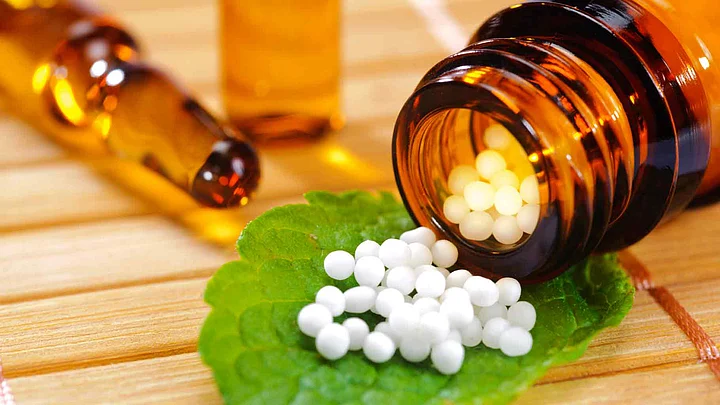It isn’t some whacky fringe belief. It is over 200 years old, used by millions of people from former Presidents, to film stars and is even credited with helping David Beckham get over his foot injury. The Royals have been ardent fans since the days of Queen Victoria but it still largely remains a scientific puzzle.
This week, a controversial post in the British Medical Journal blog that ‘homeopathy cures nothing’ stirred up a storm on this ancient alternative medicine.
So what makes homeopathy so contentious? Is it just pseudoscience based on nebulous notions developed long before modern scientific research?
The Debate Is Over The Principles Of Homeopathy
Science says the two guided principles of homeopathy are flawed:
1) Like Cures Like: So if chopped onions make you cry then onion juice can cure hayfever which produces runny nose. So in theory homeopathic medicines can be made from absolutely anything - wild plants, snake venom, mineral, glands inside goats, chalk, bee extracts; but then homeopaths found that some of these truly bizarre elements were poisonous, so they began to dilute it.
2) The more you dilute the remedy the more potent the substance becomes provided it is done in a specific way. This method of ‘serial dilution’ is problematic -i.e. a drop of the original substance (whether it is acid or snake venom) is added to 99 drops of alcohol or water and then furiously mixed.
Homeopaths believe that the substance somehow transfers its healing power into the water or alcohol base.
The medicine is diluted a million million times, equivalent to one drop in two swimming pools. Traditionally these medicines are diluted to such an extent that one drop in the whole of Atlantic Ocean will be more concentrated than the liquid in a homeopathic bottle.
Modern science says there is less than a one in billion chance that after these dilutions even a single molecule of the initial substance will be left. Yet, homeopaths believe the drop of this astronomical level of dilution on a sugar pill can cure ailments.
Despite more than 200 clinical trials, the gold standard of evidence in medicine, there are no indications that homeopathy works. That’s why allopaths and homeopaths have been over war for over a century.
The Memory Of Water: Scientific Evidence That Homeopathy Could Work
Jacques Benveniste was a superstar of a Frech scientist (1935 -2004), when he accidently validated the second principle of homeopathy while studying our body’s reaction to allergies.
He had taken a drop of a chemical and added 100 times of water to it. Just like homeopaths do. The resulting solution should be as dilute as water. But it wasn’t. Even after hundreds of dilutions the water was special - it didn’t behave like ordinary water but like the chemical that actually worked.
The research was published in the most prestigious scientific journal in the world, Nature in June 1988 along with some of the most respected works of modern science.
Cut to 2010, the chemical engineering department at IIT-Mumbai did ground breaking research when they scientifically proved that even after a billion dilutions, homeopathic medicines retain their potency.
Certain highly diluted homeopathic remedies made from metals still contain measurable amounts of the starting material, even at extreme dilutions of 1 part in 10 raised to 400 parts (200C).Dr Jayesh Bellare, Head of Department, Chemical Engineering, IIT-Mumbai
The team of experts at IIT found that homeopathy works on the principle of nanotechnology. However, the medicinal potency of the drugs was not studied.
The Believers
Accusations of charlatanism does not bother 41-year-old Minish Kothari who was bed-ridden with rheumatoid arthritis till a decade back; the disease of the joints has no cure in allopathy. Kothari was tired of popping more than 7 pain killers a day and still not being able to walk.
After 8 years of homeopathy medicines Kothari can bend almost 90-degrees and do yoga and says he is almost cured.
Allopathic doctors may disagree but 50-year-old Mumbai resident Meena Mehta tells me, she’s considers herself a medical miracle.
In 2001, she had abnormally high levels of bilirubin which resulted in liver cirrhosis. 90% of her liver was damaged, the only solution was a liver transplant. The family registered themselves for a matching donor. Skeptical and unsure, Meena tried homeopathy in the waiting period.
6 months of the ‘”magical white pills” and her reports were nearly normal.
Reema Shah, a young mother in Mumbai, is one of the millions who say, homeopathy worked for her son.
My 4-year-old son used to get asthma attacks once a month. He got relief only after a long treatment of homeopathy. Call me insane but this one time, he had 104 degrees fever, I still relied only on homeopathy. I honestly feel all the allopathic medicines I gave him in his toddler years resulted in his asthma.Reema Shah, Mother
And yet the portrayal of homeopathy as hogwash and witchcraft continues. There is growing evidence that homeopathy works, that it is cost-effective and that people across continents want it.
So is science missing something over here? For the one million Indians who turn to homeopathy to cure what ails them, these questions don’t matter.

